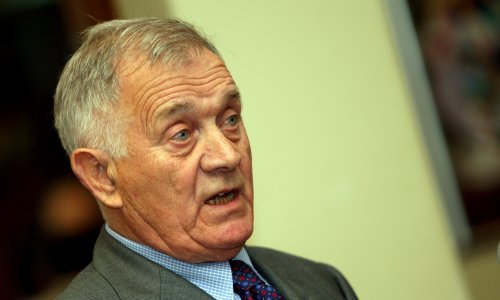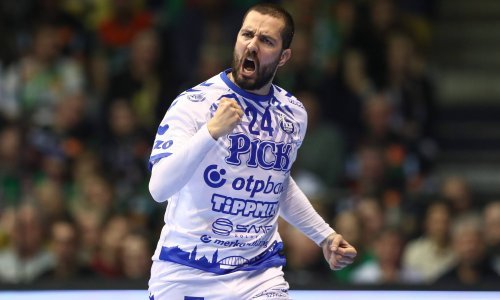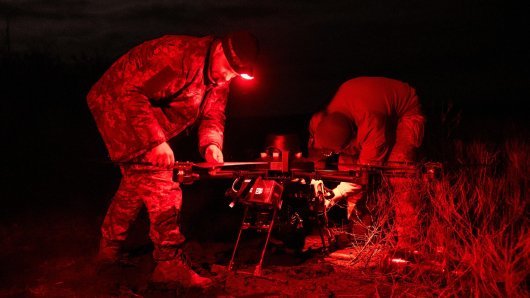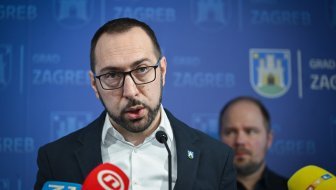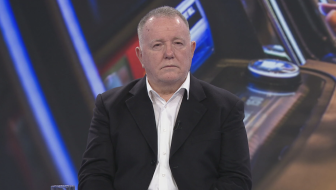The defence team for Croatian General Ante Gotovina, who was sentenced by an ICTY trial chamber to 24 years in prison for war crimes, has requested the Appeals Chamber of the International Criminal Tribunal for the former Yugoslavia (ICTY) to accept the proposed Amicus Curiae Brief filed by 12 Western military and law experts, explaining that an independent and objective assessment from those leading experts, distinguished jurists in the Laws of War field, will be thus provided to the judges of the Hague-based UN tribunal.
"The proposed Amicus Brief offers the Appeals Chamber an independent and objective assessment from leading experts in the field," reads the filing submitted by the Gotovina defence and released by the ICTY on Monday.
"They offer an analysis of the Judgement through the lens of 290 years of practical military experience. There is little doubt that their observations are of assistance to the Appeals Chamber and relevant to the issues on appeal, and thus satisfy the criteria for admissibility," reads the defence team's filing.
On 13 January 2012, a group of 12 international experts filed an application requesting to be granted the status of Amicus Curiae in the case of Generals Gotovina and Mladen Markac, so that they may present their views on the conclusions from the 15 April 2011 guilty verdict which the trial chamber handed down against them regarding unlawful artillery attacks during the 1995 Operation Storm, when the Croatian army and police liberated southern and central Croatian areas from rebel Serbs.
Last week, the Office of the Chief Prosecutor in The Hague proposed to the Appeals Chamber to turn down the Amicus Curiae Brief, deeming the filing to be irrelevant.
Corroborating the request for granting those experts the status of Amicus Curiae, the defence team says that "the twelve Applicants are experts in the practical application of the laws of war in military operations, whose views will assist the Appeals Chamber in understanding matters at the intersection between the laws of war and technical aspects of conducting military operations."
The defence team recalls that the 12 applicants raised the question "whether the Trial Chamber applied an improper burden of proof standard on a military commander."
"One of the Applicants' fundamental legal arguments is that 'it seems axiomatic that where such inquiry indicates overall lawful execution, the commander should benefit from the presumption that his orders and actions fully complied with obligations established under international humanitarian law, just as indications of overall unlawful execution would result in the opposite conclusion'."
This position contradicts the conclusion of the Trial Chamber, which found that despite lawful execution in at least 95% of fired artillery rounds, the uncertainty with respect to the remaining 5% of artillery rounds rendered the entire artillery operation unlawful, reads the defence team's filing.
"This legal argument by the Applicants is directly relevant to Ground One of the Appeal."
The Applicants challenge the Trial Chamber's methodology in applying the criterion of a 200-metre radius of error regarding artillery attacks.
The defence teams recalls that the 12 experts are "are concerned with the Trial Chamber's utilization of a 200-meter radius of error in order to determine which effects were attributable to lawful objects of attack and which were not. In the collective opinion of the Amici, this standard is fundamentally inconsistent with the realities of operational employment of artillery and other indirect fire assets."
"It is precisely this type of expertise from "experts in the practical application of the laws of war in military operations," which the Trial Chamber found to be of assistance "in understanding matters at the intersection between the laws of war and technical aspects of conducting military operations."
The fact that one of "the Applicants (Professor Corn) was called by the Defence as an expert at trial is of no consequence, given that the Prosecution has never suggested either at trial or on appeal that Professor Corn was biased or lacked objectivity." The prosecution objected in its response to the experts' filing that one of the 12 applicants was an expert witness for the defence in the trial.
"Moreover, the Amicus Brief has been endorsed by eleven other prominent individuals, including the former Senior Legal Advisor of the Office of the Prosecutor, which removes any doubt about the objectivity of the proposed Amicus Brief. The reputations of all twelve of these individuals should not be tarnished as biased or lacking in objectivity where no evidence has been offered to support such accusations," says the defence team.
"Finally, the Amicus Brief properly rests on the Trial Chamber's own finding that at least 95% of all shells fired in Knin were intended by the HV (Croatian Army) to strike military objectives; a fact the Prosecution does not dispute. Nothing in the Judgement suggests that any of these 95% of shells impacted on anything other than on or near the intended military objectives. Applicants' observation that 'approximately 96% of artillery effects impacted lawful military objectives' is merely repeating the findings of the Trial Chamber in the Judgement," reads the latest filing from the defence team.
"For the reasons set forth above, the Appeals Chamber should grant the Application because the Applicants have satisfied the standards for admissibility as set forth in Nahimana. Arguments concerning the weight to be afforded the views of the proposed Amici Curiae do not affect admissibility. The Appeals Chamber should grant the parties leave to file their own submissions concerning the weight to be afforded the Amicus Curiae brief after it has been admitted."





